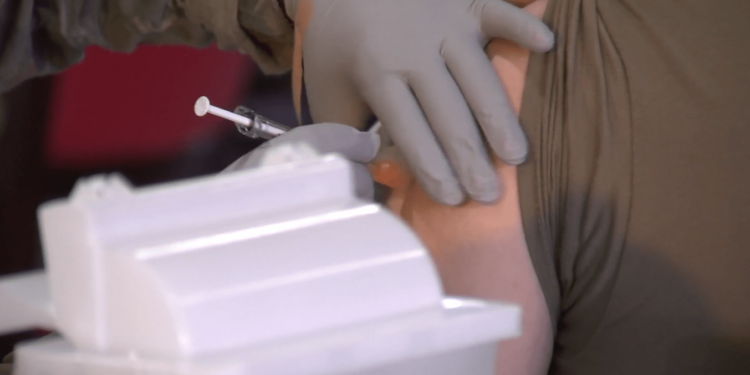UPPER PENINSULA, Mich. (WZMQ) – Stock up on the tissues and cough syrup– it’s flu, COVID, and RSV season.
And as cases of respiratory illnesses begin to rise, a new study from The National Foundation for Infectious Diseases shows almost half of us won’t get vaccinated.
The study, conducted in August, found 67% of U.S. adults agree that an annual influenza vaccine is the most effective way to prevent hospitalizations, but 45% say they don’t plan to get one or aren’t sure if they will.
“Even though you may have gotten vaccination three or four years ago, it’s important to get the most recent booster shot,” explained Aspirus Health’s Senior Vice President & System Chief Medical Officer Dr. Michael Walters.
He said viruses mutate every year, and vaccines are updated to provide protection against the current strain.
The CDC recommends those six months and older to get vaccinated against flu and COVID-19, while infants, older adults, and pregnant women should get vaccinated against RSV.
Dr. Walters said the best time to get vaccinated against respiratory illnesses is October.
“We know the respiratory illness season begins in the fall and extends through the winter and even into the early spring,” he said. “So, you’re trying to time your vaccination to provide you with the maximum amount of immunity.”
That same NFID study shows only 26% of U.S. adults say they will “definitely” get a COVID booster, and among those for whom it’s recommended– only 21% will “definitely” get the RSV vaccine.
The top reasons cited?– concern for side effects, and a general lack of trust in vaccines.
Dr. Walters said while vaccines aren’t perfect, they can prevent serious infection and hospitalization.
“So if more people are vaccinated, we’re hoping that less people will need hospitalization, and therefore consuming the valuable resources that are available and reserving those resources for those that need it the most,” he said.









